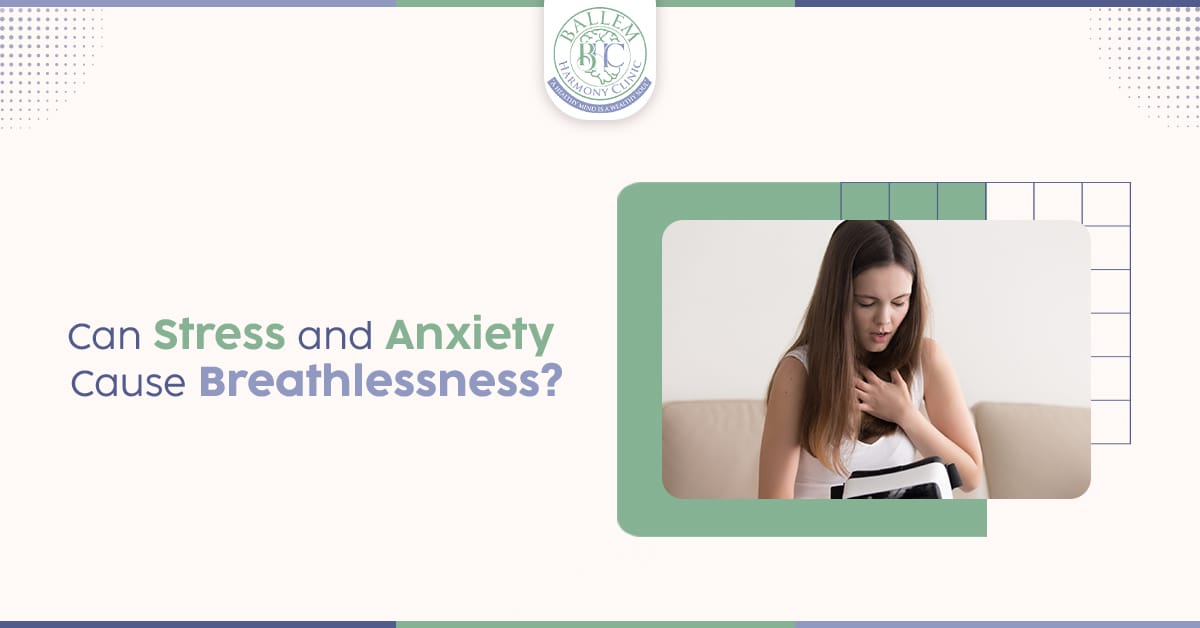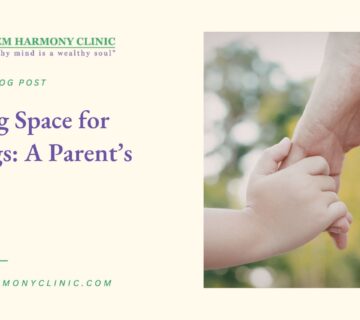You’ve felt it before: you surface and realize you haven’t just been underwater. You’ve been gasping for air, almost desperately.
The tight, irritating sensation in your chest? Real. Common. And yes—it can also be anxiety-related.
So let’s explore why, how it will feel, and most importantly, how to regain air (in all senses) and your sanity.
Why Does Anxiety Affect Your Breathing?
Our bodies are built to protect us. When your brain senses danger, even if it’s just emotional or mental stress, it triggers a survival response called “fight or flight.” That response causes a domino effect:
· Your heart starts racing
· Your muscles tense up
· Your breathing speeds up and becomes shallow
The goal? Help you escape. But when you’re just sitting at work, lying in bed, or having dinner, there’s nothing to run from. Yet your body still acts like it’s under attack.
And this leads to symptoms like:
· Shortness of breath
· Tightness in the chest
· The sensation that you’re not getting enough air
· Breath holding without even realizing it
· What some people call air hunger anxiety
So, does anxiety affect your breathing? No doubt about it.
Anxiety and Breath Holding
Breath holding is something many people with anxiety do without noticing. Your body seems to stop everything, even your breath, while your brain handles stress. This unintentional pause lowers your oxygen levels. As a result, you may feel dizzy, have chest tightness, and experience more panic.
This becomes a cycle: stress → hold breath → feel bad → stress more.
Can Anxiety Cause Coughing?
Yes, it can. That dry, bizarre cough you can’t explain? It could be from sheer anxiety.
Stress can harm your airways. It tightens up your throat muscles and makes you feel the need to cough even when you are not. Anxiety can cause post-nasal drip or tight sinuses. This may lead to more coughing or a stuffy nose.
So, does anxiety make you cough? It might.
Shortness of Breath After Eating? Blame Anxiety
Have you ever experienced that gasping sensation after eating? Mostly when you are all tensed up?
Breathing difficulty after a meal is something quite common. With the intake of food, the stomach starts swelling up, and it’s pressed against the diaphragm. When anxiety hits, the pressure can become too much. It may feel like the person has to struggle to breathe.
No food-it’s how your body deals with stress.
Is It Possible to “Forget” How to Breathe?
Yes. Focusing hard on my breathing makes each breath feel off. I can’t help but think about it. This fixation makes normal breathing feel forced or fake. It’s like when you walk and think about how to walk, which often leads to stumbling.
This is where thoughts like “Is it possible to forget how to breathe?” come in. Anxiety makes natural things feel unnatural.
Other Anxiety-Related Breathing Symptoms
You might also notice:
· Cough due to anxiety that doesn’t go away
· A blocked nose for no clear reason
· Feeling like you’re breathing through a straw
· Chest tension from an “anxiety tight diaphragm”
· Feeling stuck in the loop of “can’t stop thinking about breathing”
Sometimes, even just holding your breath during a tense conversation or while scrolling on your phone can bring on symptoms.
How to Know If Shortness of Breath Is From Anxiety
You might wonder, “Is this just anxiety? Or something else?”
Here are a few signs it might be anxiety:
· You’re sitting still or not being physically active
· Symptoms appear during or right after stress
· They fade when you’re distracted
· Deep breathing makes things feel better
· You don’t have fever, chest pain, or a serious cough
Still unsure? Always talk to your doctor. It’s better to check than guess.
What Can You Do to Feel Better?
You don’t have to stay stuck in this loop. Here are some easy, practical ways to ease anxiety-related breathlessness:
1. Try Box Breathing
Inhale for 4 seconds → hold for 4 → exhale for 4 → rest for 4. Repeat. It helps your body reset.
2. Be Aware of Breath Holding
Just notice it. Don’t force deep breaths—just gently guide yourself back to regular breathing.
3. Move Your Body
A slow walk or stretch can reset your nervous system and loosen tight muscles.
4. Ground Yourself
Use the 5-4-3-2-1 technique: 5 things you see, 4 you feel, 3 you hear, and so on. It pulls you out of your head.
5. Talk to Someone
Breathing becomes easier when you’re not carrying the weight of it alone.
Breathe Easier, With Support That Understands
At Ballem Harmony Clinic, we’ve assisted many people who thought they were “just stressed.” Their bodies were actually trying to communicate. Symptoms such as breathlessness, racing thoughts, and endless “what if” loops often show deeper problems.”
You don’t have to keep guessing. You don’t have to manage alone. Let us help you find peace—one breath at a time.
Final Thoughts: Can Stress and Anxiety Cause Breathlessness?
So, Can Stress and Anxiety Cause Breathlessness? Yes. And it’s a real, physical experience rooted in how your brain and body respond to fear, even imagined ones.
From air hunger and blocked noses to thinking you’ve forgotten how to breathe—it’s all part of anxiety’s tricky pattern.
But it’s a pattern you can break. With self-awareness, practical tools, and the right support, you can reclaim your breath, your calm, and your clarity.
Let Ballem Harmony Clinic Walk with you through it. You were never meant to go through this alone.
FAQs – Can Stress and Anxiety Cause Breathlessness?
Can anxiety really make it hard to breathe?
Anxiety causes the body to go into a stress response that alters the way breathing occurs to occur quicker and not as freely. It can make the patient appear to be breathless or that they cannot catch their breath.
What is “air hunger anxiety”?
It is the feeling that insufficient oxygen is being received, even when it is. Usually, this happens when one becomes too aware that it will cure.
Can anxiety cause a cough?
Yes, anxiety can make muscles tense. This can irritate the throat and even pressure the sinuses, leading to a dry cough.
Why do I feel like I’m breathing through a straw?
Anxiety tightens chest muscles and makes the diaphragm contract.
How do I know if my breathlessness is anxiety or something else?
If it comes and goes with stress, improves when you’re distracted, and eases with deep breathing—it’s likely anxiety. But always consult a healthcare provider to be sure.








No comment